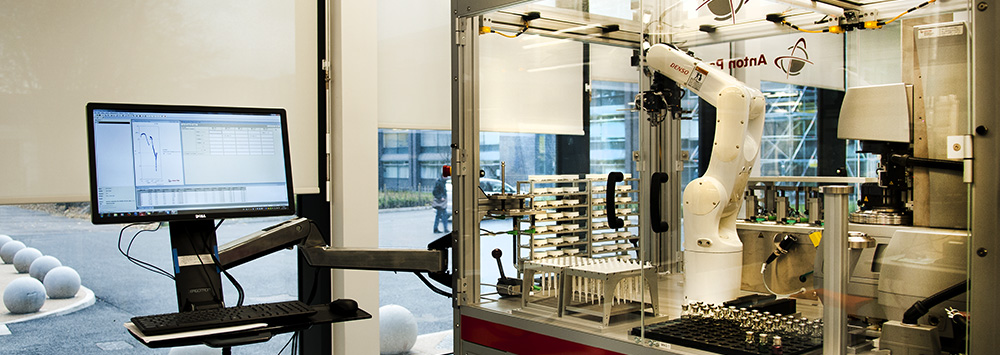The ATC runs a 42 month training programme, which in addition to the main research project incorporates a number of high quality training modules delivered to the yearly intake cohort as a group.
The Ph.D projects running in the ATC tackle multidisciplinary problems which have been co-defined by industrial partners, working with University of Liverpool academics in the physical sciences, computer science, and engineering, with supervisory teams spanning the range of disciplines required to deliver the training. Core training in robotics, automation and data science will form part of a unifying curriculum, together with leadership and entrepreneurship training, to underpin the individual research projects.
Colocation of the ATC cohort in the Materials Innovation Factory (MIF) ensures that the students can access both formally and informally the cross-discipline engagement required, and in particular, will be able to access the unparalleled automation facilities of the MIF, such as the £3M Formulation Engine. The students also have a close connection to the well-established community around the Leverhulme Research Centre in Functional Materials Design, which is typified by a vibrant functioning engagement between physical science and computer science.
The Ph.D training approach delivered by the ATC has been co-created with our key industrial partners. It is a compelling and unique training offer, which is based on world class research strengths at Liverpool, and the unique translational science environment of our Materials Innovation Factory (MIF) infrastructure. As high-performing industrial organisations have moved to “Industry 4.0”, enabled by the pervasive use of digital sensors, robotics, and artificial intelligence in their manufacturing operations, they have also begun to articulate an urgent need to make a similar move in their research, innovation and product development R&D operations to “Innovation 4.0”.
The students graduating in 2023 well represent the diversity of academic backgrounds and destinations. For example, Thomas Beesly, a Physics graduate sponsored by the NSG group to work on transparent conducting materials, says “the project was challenging but also incredibly interesting and diverse, giving be the opportunity to learn valuable skills in Data Science that I had never explored before. I have recently been hired by NSG and I can't wait to see what else I can achieve and contribute to the team.” Omer Ömar, with a background in Chemistry says "through the ATC training, I learned how to combine high-throughput virtual screening and data science to discover new optoelectronic materials and I was able to verify my own findings experimentally. The next step for me would be to commercialise a digital discovery platform for organic electronics.
The director of the ATC is Professor Matt Rosseinsky FRS, with administrative support from the academic and operational MIF team, and the Faculty of Science and Engineering. The Centre operates with a Core Partner Group who agree on training directions, identify non-competitive cross-company research opportunities, and flexibly refresh the training programme to ensure it reflects industrial and academic priorities.
Back to: Materials Innovation Factory
